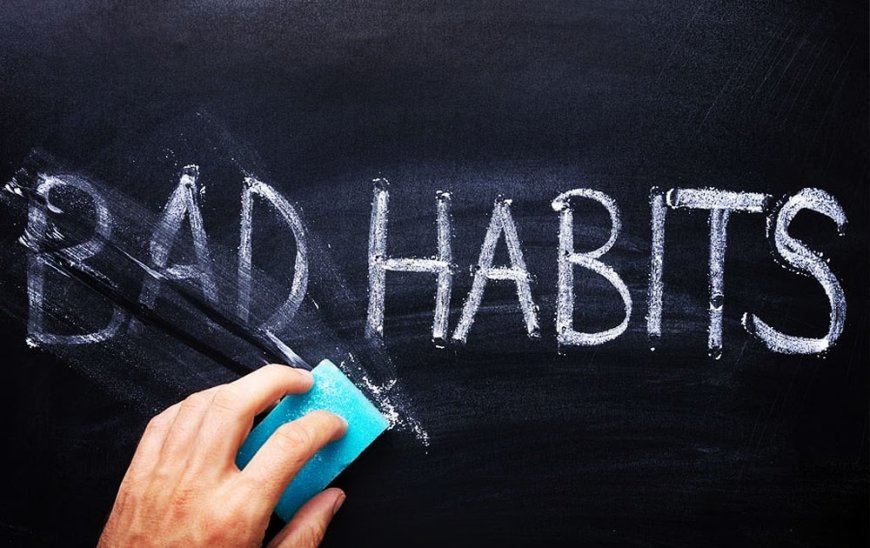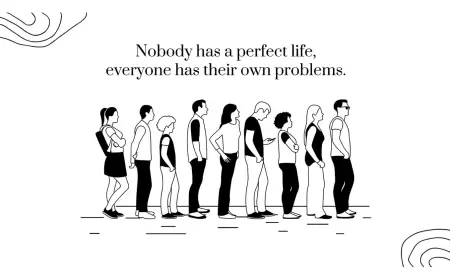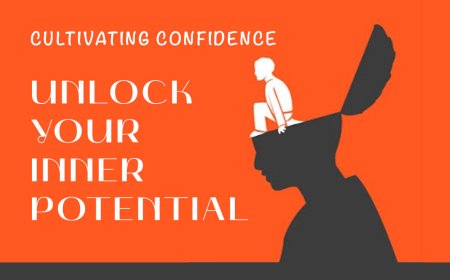How to Build and Stick To New Habbits?
In the pursuit of personal growth and self-improvement, establishing positive habits plays a vital role. The famous philosopher Aristotle once said, "We are what we repeatedly do.

In the pursuit of personal growth and self-improvement, establishing positive habits plays a vital role. The famous philosopher Aristotle once said, "We are what we repeatedly do. Excellence, then, is not an act, but a habit." Our habits shape our character, behaviors, and ultimately, our destinies. Whether it's adopting a healthier lifestyle, becoming more organized, or enhancing productivity, the process of forming a new habit can be both challenging and rewarding.
Many people set ambitious goals and resolutions, only to find themselves struggling to stick with them. The key to success lies in understanding the science behind habit formation and applying effective strategies to ensure the new habit becomes an integral part of daily life. In this article, we will explore practical steps to start a new habit that truly sticks.
- Understand the Power of Habits:
Habits are automatic routines that our brains develop to conserve energy and simplify decision-making. When we repeat an action consistently, it becomes ingrained in our neural pathways, making it easier to perform over time. Whether it's a positive or negative habit, our brains seek to reinforce familiar patterns.
Recognizing the power of habits allows us to harness this innate capability for our benefit. We can rewire our brains and create healthier routines by understanding how habits are formed and modified.
- Identify the Right Habit:
To start a new habit, it's crucial to identify the one that aligns with your goals and values. Choosing the right habit ensures that your efforts are focused and meaningful. Take some time for introspection and consider which areas of your life could benefit the most from a positive change.
Ask yourself what you truly want to achieve and the values you wish to embody. Whether it's exercising regularly, eating healthier, reading daily, or practicing gratitude, pick a habit that resonates with your long-term aspirations.
- Set Specific and Realistic Goals:
Once you've identified the habit you want to adopt, it's time to set clear and achievable goals. Break down your larger objective into smaller, manageable steps. Starting small and celebrating incremental progress will prevent overwhelm and help maintain motivation.
For instance, if your goal is to exercise regularly, start with a realistic commitment like 15 minutes of physical activity per day. As you build consistency and confidence, gradually increase the duration and intensity of your workouts.
- Create a Trigger:
Triggers are cues that prompt the initiation of a habit. They can be time-based, location-based, or even emotion-based. Linking your new habit to an existing routine or ritual can be an effective trigger mechanism.
For instance, if you want to establish a habit of reading daily, you can make it a rule to read a few pages every night before bedtime. Associating reading with the bedtime routine will create a strong trigger, making it easier to remember and perform the action consistently.
- Build a Support System:
Share your habit-building journey with friends, family, or like-minded individuals who can provide encouragement and support. Surrounding yourself with a positive and supportive network can make a significant difference in maintaining motivation, especially during challenging times.
Consider joining a group or community centered around the habit you're trying to cultivate. Whether it's a fitness class, a book club, or an online support group, interacting with others pursuing similar goals can boost your commitment and accountability.
- Track Your Progress:
Keeping track of your progress is essential for staying motivated and focused on your goals. Use a journal, habit-tracking apps, or a simple calendar to record each time you successfully complete your new habit.
Seeing your progress visually can be highly motivating and reinforces the positive changes you're making. It also helps identify patterns, allowing you to address any obstacles or challenges that may arise.
- Reward Yourself:
Celebrate your achievements, no matter how small they may seem. Positive reinforcement can strengthen the neural pathways associated with your new habit, making it more likely to stick. Treat yourself to a small reward each time you successfully follow through with your habit.
These rewards can be as simple as indulging in your favorite treat, spending time doing an activity you enjoy, or acknowledging your success with positive self-talk. The important thing is to associate positive emotions with your habit, making it more enjoyable and sustainable.
- Prepare for Setbacks:
It's essential to recognize that forming a new habit is not always a linear process. Setbacks and challenges are a natural part of the journey, and it's essential not to be too hard on yourself if you miss a day or slip up.
Instead of viewing setbacks as failures, use them as opportunities to learn and improve. Reflect on what caused the deviation from your habit and develop strategies to handle similar situations better in the future.
- Be Consistent:
Consistency is the key to successful habit formation. Aim to perform your new habit at the same time and in the same context whenever possible. The more consistent you are, the more likely the habit will become automatic, ingrained in your daily routine.
Avoid making exceptions or skipping days, as this can undermine the habit-forming process. Make a commitment to yourself and prioritize your new habit as an essential part of your life.
- Stay Patient and Persistent:
Building a new habit takes time and effort. While some sources suggest it takes around 21 days to form a habit, research indicates that the timeline can vary significantly depending on the complexity of the habit and the individual.
On average, it may take anywhere from 2 to 8 months to fully establish a new habit. Be patient with yourself, and don't get discouraged if you don't see immediate results. Stay persistent and committed, and over time, your efforts will pay off.
Starting a new habit that actually sticks requires self-awareness, dedication, and consistent effort. By understanding the science of habit formation and implementing practical strategies, you can create positive changes that enhance your life in numerous ways.
Remember that habits don't develop overnight. Be patient with yourself, celebrate your progress, and stay committed to your goals. As you integrate the new habit into your daily life, it will become second nature, empowering you to embrace a more fulfilling and enriching lifestyle. So, take that first step today and embark on a transformative journey of personal growth through the power of habits.
What's Your Reaction?
 Like
0
Like
0
 Dislike
0
Dislike
0
 Love
0
Love
0
 Funny
0
Funny
0
 Angry
0
Angry
0
 Sad
0
Sad
0
 Wow
0
Wow
0
































































































































































